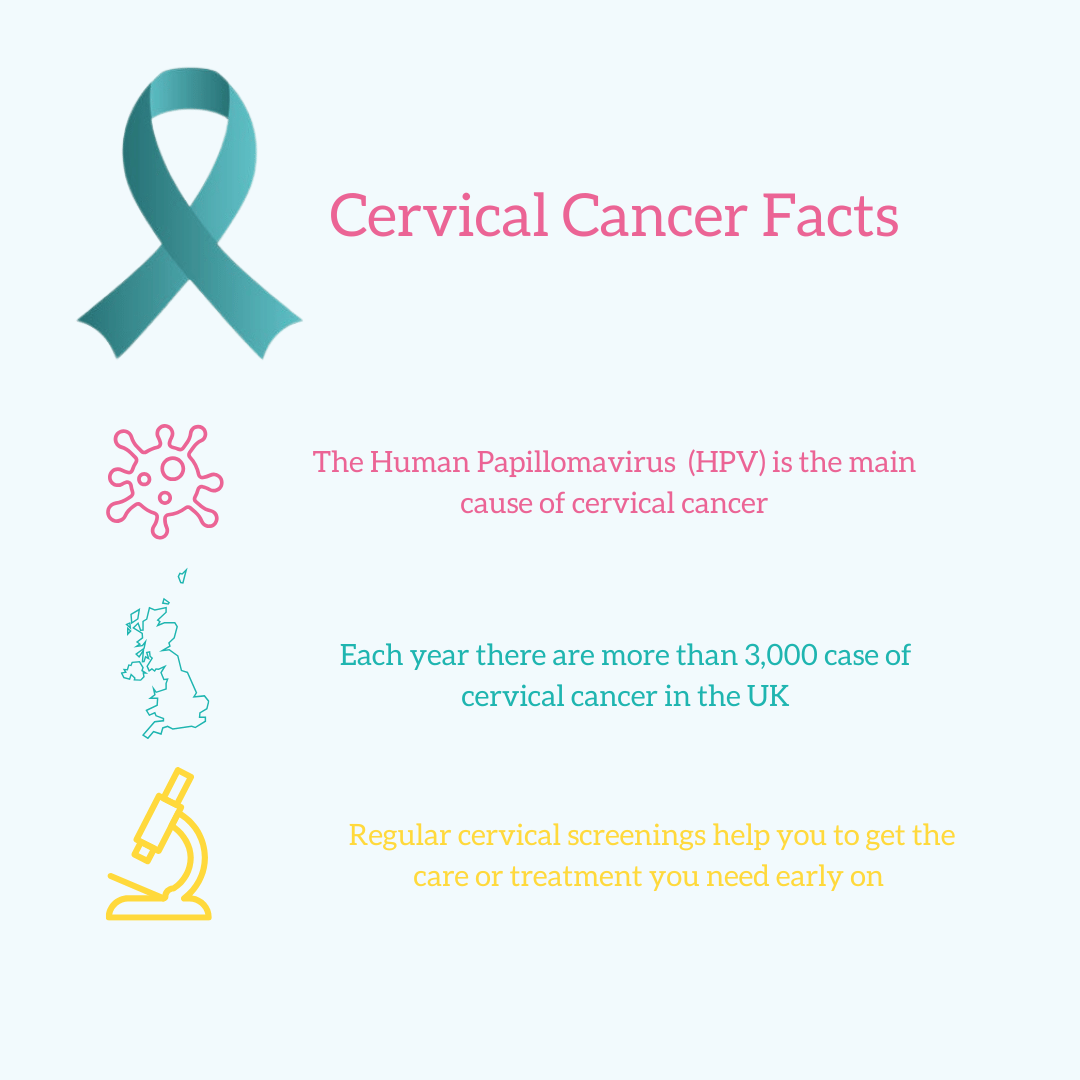Cervical Cancer Awareness Month

Cervical Cancer Awareness Month is held every January to raise awareness about cervical cancer - how to prevent it, and detect it early.
What is cervical cancer?
Every year in the UK more than 3,200 women are diagnosed with cervical cancer. It can affect people of all ages.
Cervical cancer is cancer of the lower part of the uterus, and in its early stages may not present any symptoms. It is usually found and treated because of cervical screening tests (this includes a smear test).
Common symptoms of cervical cancer include:
- heavier periods than you normally have
- vaginal bleeding between periods, after sex, or after menopause
- unpleasant smelling discharge from the vagina
- pain or discomfort during sex
- urine infections that keep coming back
If you experience any of these symptoms between your regular cervical screening, talk to your GP or health professional and get the symptoms checked. The earlier cervical cancer is found, the easier it is to treat.
What is cervical screening?
Cervical screening is a way of preventing cervical cancer.
In the UK you will be sent an invitation to book a cervical screening at your GP surgery, after your 25th birthday.
You will then be sent an invite for screening every three to five years until the age of 50.
The screening looks for the human papillomavirus (HPV), which can cause abnormal cells on the cervix. If high-risk HPV is found, the sample will be checked for any changes to the cells. These cells aren’t cancer but could maybe lead to cervical cancer in the future.
1 in 3 women do not attend their cervical screening test. If you are worried about going for cervical screening please visit the Macmillan Cancer Support website, which has booklets available on how to help make the screening work for you.
For further information and support about cervical cancer, and cervical screening, please visit the Macmillan Cancer Support, and Eve Appeal websites.




Comments